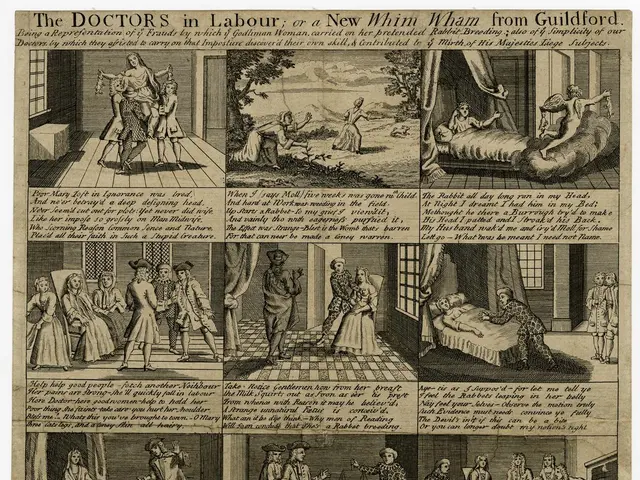Checking if a work stamp is necessary for a smoke break at your job?
Taking a quick puff? That's just a part of the daily grind for some folks, but does the boss have to accept this?
Time for a smoke break, and the tension eases for some. But do employees have to clock out during this little breather? And can the boss prevent employees from stepping outside for a smoke or a vape?
"Smoke breaks are ordinary interruptions in working hours," explains Jakob T. Lange, a specialist labor lawyer in Wiesbaden. If you take a smoke break, you should regularly clock out for that time. If there's a time-keeping system, the boss can require employees to clock out for the smoke break. This time, like any ordinary break, isn't considered paid working hours and may need to be made up.
Ghosting the Break: When Breaking the Rules Becomes a Problem
Though employees generally manage their breaks as they please, restrictions regarding smoking may apply.
- Health concerns for non-smokers—which the boss must address—become an issue here.
- Safety concerns such as fire hazards can also be relevant, like at a gas station, where smoking may be restricted to specific areas.
Depending on the business type, the boss can prohibit smoking in certain areas, work stations, or even the entire workspace. However, a total smoking ban for employees may not be universally possible, according to prevailing legal opinion.
Going Green: Quit Smoking, All Nicotine Replacements Convince
In any case, the boss must consider the co-determination rights of the works council - if it exists in the company - with regards to smoking. A smoking ban or its design usually requires the consent of the works council.
Jakob T. Lange is a specialist labor lawyer and a member of the executive committee of the labor law working group of the German Bar Association (DAV).
U.S. Perspective
Under U.S. federal law, employers aren't obligated to provide meal or rest breaks, nor are there specific legal entitlements for smoking breaks. The compensation for breaks depends on their duration and purpose, determined by the employer.
If an employer permits brief breaks (usually under 20 minutes), these are generally considered compensable work time, and the employee shouldn't be required to clock out. If a break lasts over 30 minutes, such as a typical meal break, it can be uncompensated, and the employee may need to clock out. However, if an employer offers a designated smoking break and views it as a brief break (under 20 minutes), federal law requires it to be paid, so employees shouldn't clock out for such a break. If the smoking break is deemed a longer, unpaid break, then the employee may need to clock out.
State laws may impose additional requirements or restrictions on breaks and their compensation, so employers should also consult relevant state guidelines. Additionally, there's no obligation to provide smoking-specific breaks; this depends on company policy.
Employers must communicate their break policies, whether breaks are paid or unpaid, to avoid confusion and potential compliance issues.
[1] U.S. Department of Labor: Wage and Hour Division, Breaks, 2021.[2] Nolo, Meal and Rest Break Laws, 2021.[3] U.S. Department of Labor: Wage and Hour Division, Employment Standards Administration Fact Sheet #15 - White Collar Exemptions, 2021.[4] Cornell University Law School, Rest Breaks, 2021.[5] Society for Human Resource Management, Meal and Rest Breaks - Laws And Requirements, 2021.
- In the realm of science, extensive research has been conducted on the health impact of smoking, highlighting the need for employers to implement health-and-wellness policies that address smoking in the workplace.
- As businesses expand, they often need to establish comprehensive employment policies to ensure a productive and safe environment for all employees, with policies on lifestyle choices, such as smoking, being a significant part of these systems.
- The finance sector, like other industries, is subject to regulation and compliance challenges, including the need to adhere to certain employment policies that may include restrictions on smoking or other wellness-related policies, to protect the health and well-being of their employees.








